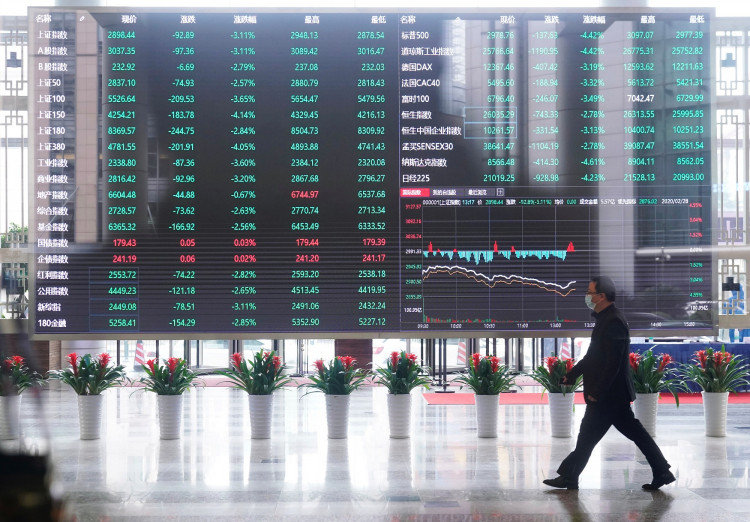The public trading debut of Semiconductor Manufacturing International Corp (SMIC) on the Shanghai Start Market tech innovation board was extremely well received on Thursday. So much so that the company's share price nearly tripled in value, increasing by more than 246 percent from its initial offer price.
SMIC's shares traded as high as 95 yuan on Thursday, a big jump from its offer price of 27.46 yuan. The stock eventually corrected and closed at 82.92 yuan at the end of the trading day. The price declined some on Friday, to 77.07 yuan. The Nasdaq-styled Star Market does allow for unlimited two-way price swings for the first five days of trading.
The IPO managed to raise around 53.2 billion yuan from the 1.9 billion shares sold, making it the country's largest listing in over a decade. The last major IPO was launched by the Agricultural Bank of China, which raised 68.8 billion yuan in 2010.
The rally during the trading debut increased SMIC's market capitalization to more than 590 billion yuan or roughly $84.2 billion. The surge came amidst a wider market slump in China, with the Shanghai Composite Index dropping by more than 4.5 percent during the same day. SMIC's share prices in Hong Kong also dropped by 25 percent, ending the day at HK$28.75.
SMIC's listing debut at the Shanghai Stock Exchange was only attended by a relatively small number of people, mostly executives, and investors that had exclusive invites to the ceremony. Media organizations were not invited to the event to limit the number of participants in light of the lingering coronavirus threat.
The Shanghai listing of the country's top chipmaker was closely watched by domestic and global investors as it marks the latest return of U.S.-listed Chinese tech giants. Major Chinese tech firms that had or have listings in the U.S. such as Alibaba, JD.com, and NetEase have already launched secondary listings in China.
Given the escalating tensions between China and the U.S. and the tightening restrictions imposed by U.S. capital markets against Chinese firms, more tech giants are now choosing to list their shares at home to mitigate their risks and reduce their exposure to the conflict. Apart from SMIC, tech firms as Baidu are reportedly considering listing additional shares in Hong Kong or the mainland.
SMIC's listing, which was fast-tracked by the government and approved within 18 days, is also part of the country's wider efforts to become less dependent on foreign computing components. SMIC had mentioned in its prospectus that it plans to use the proceeds of the share sale to fund its development of more advanced chips to compete with products from its international rivals.





